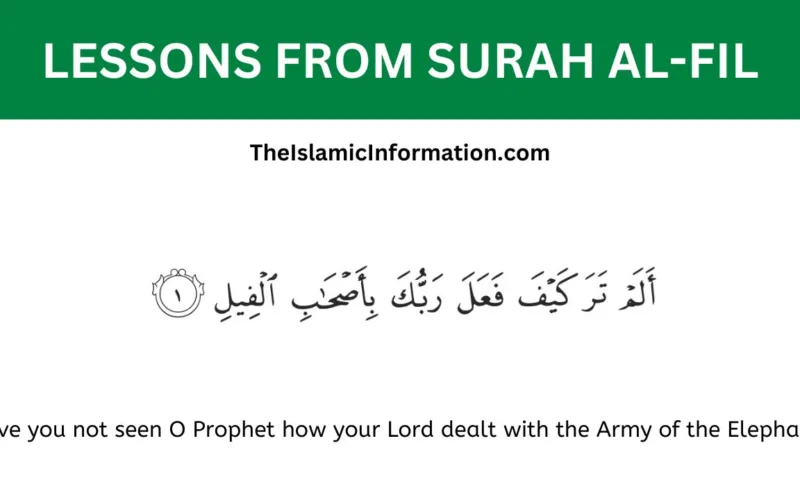Surah Al-Fil (The Elephant) recalls the story of the Year of the Elephant, when an army led by Abraha tried to destroy the Kaaba.
Allah’s intervention saved the sacred sanctuary. Below are 10 important lessons we can learn from this surah.
1. Allah’s Absolute Power Over His Creation (Verse 1)
“Have you (O Muhammad) not seen how your Lord dealt with the owners of the elephant?” (105:1)
This verse reminds us of Allah’s supreme control over everything in existence. No matter how powerful a ruler or army may seem, Allah’s will prevails.
2. Arrogance Leads to Destruction (Verse 1)
Abraha’s arrogance in attempting to destroy the Kaaba reflects a key lesson: those who challenge Allah’s sanctity and plan with arrogance will face divine punishment. Human power is insignificant in the face of Allah’s might.
3. Allah Protects What Is Sacred (Verse 2)
“Did He not make their plot go astray?” (105:2)
Allah’s protection of the Kaaba, His sacred house, shows that He safeguards what is holy. This teaches us that divine intervention occurs to defend sacredness and justice.
4. Trust in Allah’s Protection (Verse 2)
Allah thwarted Abraha’s army without any human intervention. This teaches us the importance of having unwavering trust in Allah, especially when we face overwhelming odds. His protection is enough.
5. Allah’s Power is Beyond Human Comprehension (Verse 3)
“And He sent against them birds in flocks,” (105:3)
This verse highlights that Allah’s means of defense can be entirely unexpected. Small creatures like birds were enough to destroy a mighty army, reminding us that Allah’s power is limitless.
6. The Futility of Opposing Allah’s Plan (Verse 3)
Abraha’s well-thought-out plans were foiled by divine intervention. No matter how well-prepared we think we are, we can never succeed if our actions are against Allah’s will. His plan will always prevail.
7. Allah’s Unique Methods of Delivering Justice (Verse 4)
“Striking them with stones of baked clay,” (105:4)
The method of destruction—birds dropping stones—was extraordinary and shows that Allah’s ways are unlike any human intervention. His justice can come in ways we cannot imagine.
8. The Downfall of Tyrants is Inevitable (Verse 4)
The fall of Abraha’s army shows that tyrants, no matter how powerful, will meet their downfall when they challenge divine authority. Those who oppress others and defy Allah will face consequences in this life or the next.
9. Allah’s Mercy on the Believers (Verse 5)
“And He made them like eaten straw.” (105:5)
While the aggressors were destroyed, the people of Mecca were saved, showing Allah’s mercy on the believers. It teaches us that as long as we remain steadfast in our faith, Allah’s mercy and protection are near.
10. Allah’s Control Over Life and Death (Verse 5)
By reducing the mighty army to nothing, like “eaten straw,” this verse reminds us that life and death are under Allah’s control. He can give victory or take it away in an instant, humbling even the most powerful.
Surah Al-Fil is a profound reminder of Allah’s omnipotence and the importance of relying on Him. Through the story of Abraha’s army, we learn essential lessons about faith, humility, and divine justice.


 WhatsApp Channel
WhatsApp Channel
 Instagram
Instagram
 Facebook
Facebook
 X (Twitter)
X (Twitter)
 Google News
Google News